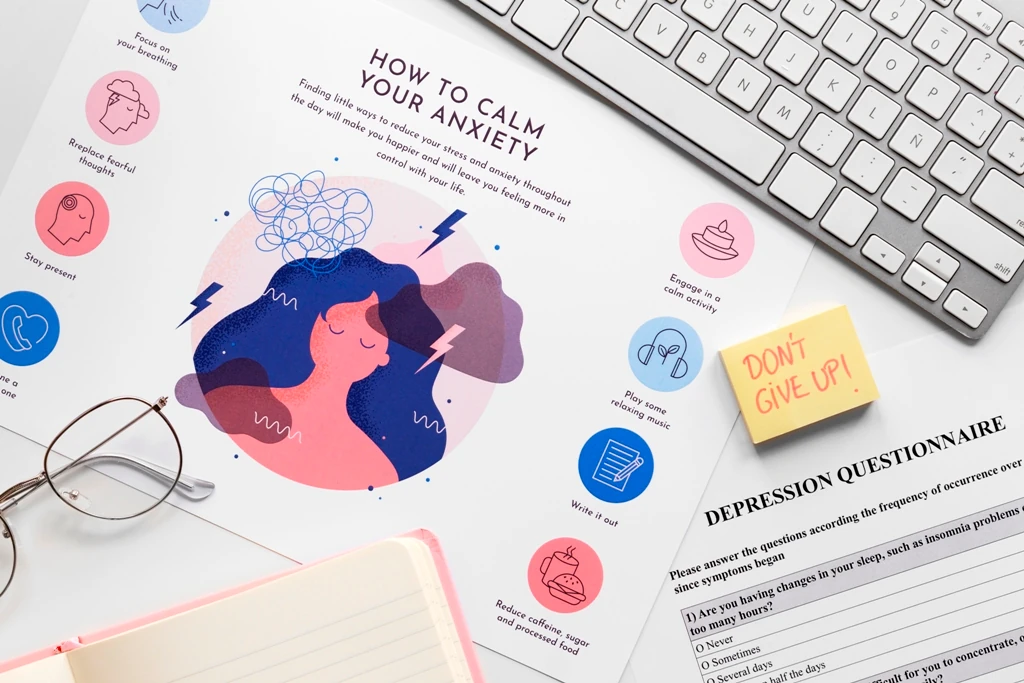“Elevate Your Awareness: The Significance of Mental Health in Modern Life”
Understanding that mental health matters is crucial for promoting well-being and creating a supportive environment for individuals who may be struggling. Here are some steps to help you recognize the importance of mental health:

- Education and Awareness: Educate yourself about mental health. Learn about different mental health conditions, their symptoms, causes, and treatment options. Understanding that mental health is just as important as physical health is the first step.
- Destigmatization: Recognize that mental health challenges are common and affect people from all walks of life. Work to eliminate the stigma surrounding mental health issues by discussing them openly and showing empathy and understanding.
- Personal Reflection: Take some time to reflect on your own mental well-being. Consider your emotions, stress levels, and overall mental state. Self-awareness is key to recognizing when you might need help or support.
- Impact on Daily Life: Understand that mental health affects every aspect of a person’s life, including their relationships, work, and physical health. Recognize the signs of poor mental health, such as changes in behavior, mood, or functioning.
- Listen and Communicate: Be an active and empathetic listener when someone shares their feelings or experiences. Encourage open communication about mental health by creating a safe space for others to talk.
- Support System: Build a strong support system for yourself and those around you. Encourage friends, family members, and colleagues to prioritize their mental well-being and offer assistance when needed.
- Seek Professional Help: Understand that seeking help from mental health professionals is a sign of strength, not weakness. If you or someone you know is struggling with mental health issues, encourage them to seek therapy, counseling, or psychiatric help.
- Promote Self-Care: Emphasize the importance of self-care and stress reduction techniques. Encourage activities like exercise, meditation, journaling, and spending time in nature, as they can have positive effects on mental health.
- Advocate for Change: Support policies and initiatives that prioritize mental health awareness, access to care, and destigmatization. Advocate for workplace programs that promote employee well-being.
- Lead by Example: By taking care of your own mental health, you can inspire others to do the same. Show that prioritizing mental health is a valuable part of living a fulfilling and balanced life.
Remember that mental health matters because it affects everyone. Just like physical health, mental health plays a critical role in our overall well-being, productivity, and quality of life.
Ending the stigma surrounding mental health and seeking support is a crucial and ongoing effort in society. For far too long, mental health issues have been stigmatized, leading to misunderstanding, discrimination, and individuals not receiving the help they need. Here’s why ending the stigma and seeking support is so important, along with some steps that can be taken:
Importance of Ending the Stigma:
- Promoting Well-being: Mental health is an integral part of overall well-being. Addressing mental health issues is as important as addressing physical health issues.
- Encouraging Openness: Reducing stigma encourages people to openly discuss their struggles, fostering a sense of connection and understanding.
- Access to Treatment: Stigma often prevents individuals from seeking professional help, which can worsen their condition. Ending stigma can lead to increased access to treatment.
- Preventing Isolation: Stigmatizing mental health can lead to social isolation, making individuals feel ashamed and disconnected from their communities.
- Productivity and Relationships: Mental health affects productivity, relationships, and daily functioning. By supporting mental health, we promote healthier individuals and societies.
Ways to End the Stigma and Seek Support:
- Education and Awareness: Promote accurate information about mental health through campaigns, workshops, and educational initiatives to dispel myths and misinformation.
- Open Conversations: Encourage open dialogues about mental health in families, schools, workplaces, and communities to normalize discussions.
- Media Representation: Advocate for responsible media portrayal of mental health issues to reduce negative stereotypes.
- Role Models: Highlight individuals who have openly dealt with mental health challenges, showcasing that seeking help is a sign of strength.
- Language Matters: Be mindful of the language used when discussing mental health. Avoid derogatory terms and use person-first language.
- Support Systems: Create and strengthen support systems for individuals struggling with mental health. This could be through community organizations, online forums, or peer groups.
- Access to Treatment: Improve access to affordable and quality mental health services, making it easier for people to seek help when needed.
- Workplace Initiatives: Encourage workplaces to implement mental health programs and provide resources for employees.
- Government Policies: Advocate for policies that prioritize mental health care, reduce discrimination, and support individuals with mental health conditions.
- Self-Care and Self-Compassion: Promote self-care practices and self-compassion, emphasizing that everyone deserves to prioritize their mental well-being.
Remember that ending the stigma and seeking support is an ongoing process that requires collective effort. It starts with individual actions and conversations that contribute to changing societal attitudes toward mental health. By fostering an environment of understanding and empathy, we can create a world where seeking help for mental health is not only accepted but encouraged.
Exercise Tips For Everyone: Tailoring fitness Routines To Your Need:









